Dagstuhl Seminar 25071
Dealing with Complexities in Auction and Matching Market Design
( Feb 09 – Feb 14, 2025 )
Permalink
Organizers
- Martin Bichler (TU München - Garching, DE)
- Péter Biró (HUN-REN KRTK - Budapest, HU & Corvinus University of Budapest, HU)
- Bettina Klaus (University of Lausanne, CH)
Contact
- Michael Gerke (for scientific matters)
- Simone Schilke (for administrative matters)
Dagstuhl Reports
As part of the mandatory documentation, participants are asked to submit their talk abstracts, working group results, etc. for publication in our series Dagstuhl Reports via the Dagstuhl Reports Submission System.
- Upload (Use personal credentials as created in DOOR to log in)
Shared Documents
- Dagstuhl Materials Page (Use personal credentials as created in DOOR to log in)
The study of markets has long been a central focus of economics, management sciences, and more recently, computer science. Matching without money led to substantial research at the intersection of these fields, and there is also a long history of thought on price-based markets. For example, general equilibrium theory attempts to explain supply, demand, and prices in an economy with several interacting markets for objects. The celebrated Arrow–Debreu model suggests that, under certain assumptions such as divisible objects, convex preferences, and demand independence, there must be a set of anonymous and linear (Walrasian) prices such that aggregate supplies will equal aggregate demands for every commodity in the economy in a competitive equilibrium. Stable matchings in the classical Gale-Shapley college admission model and its generalizations are based on similar equilibrium concepts, where cutoff scores are playing a role similar to prices to induce fair allocations.
Goods are typically not divisible in most markets, and they need to consider complex allocation constraints and preferences. Spectrum auctions where telecoms have preferences for packages of licenses or day-ahead electricity markets provide illustrative examples. Complexities arise from superadditive valuations for packages of items or allocation constraints. The resulting allocation problems are typically non-convex, which leads to computational as well as economic challenges. A competitive equilibrium does not generally exist in such markets, which has led to significant research on the stability of non-convex and price-based markets. Likewise, stable matchings may not exist in complex markets without payments, such as college admissions with lower and upper quotas, and the related problems can be NP-hard. The computational complexity barriers require sophisticated optimization techniques to resolve.
General equilibrium theory focuses on economies where participants are price-takers, which can be a reasonable assumption for large non-convex markets where bidders often do not have enough market power or information to manipulate strategically. For most markets, however, this is too strong an assumption. Ideally, market designs are incentive-compatible. However, designing markets that consider real-world constraints and that are robust against strategic manipulation has proven challenging. Practically feasible market designs might not be incentive-compatible, and one needs to understand equilibrium strategies in markets where the truthful revelation of preferences might not be an equilibrium strategy. This has led to a growing interest in equilibrium learning and the manipulability of non-truthful market designs. Engineering economics is a new interdisciplinary approach tackling all the above issues.
The same problems arise in matching markets without money. Further examples include course allocation, hospital-resident matching, kidney exchanges, refugee resettlement, or school choice. Complex constraints arise in many of these applications, e.g., hospital-resident matching where couples of doctors need to be considered, as well as distributional constraints on the assignment of minorities or quotas that need consideration in school choice. In applications such as course matching, students have preferences for bundles of courses. All these constraints make it hard or impossible to implement incentive-compatible and stable or efficient market mechanisms. Market designers explored approximation and randomization or the introduction of fake money in pseudo-markets to circumvent some impossibilities.
There are many connections between market design with and without money, and this Dagstuhl Seminar aims to provide a platform for scholars in auctions, matching, and learning in games to work together and develop new ideas on how to deal with the complexities in designing and analyzing real-world markets.
 Martin Bichler, Péter Biró, and Bettina Klaus
Martin Bichler, Péter Biró, and Bettina Klaus
Please log in to DOOR to see more details.
- Haris Aziz (UNSW - Sydney, AU) [dblp]
- Martin Bichler (TU München - Garching, DE) [dblp]
- Péter Biró (HUN-REN KRTK - Budapest, HU & Corvinus University of Budapest, HU) [dblp]
- Federico Bobbio (Northwestern University - Evanston, US)
- Janik Bürgermeister (TU München, DE)
- Margarida Carvalho (University of Montreal, CA)
- Gian Caspari (Zt. für Europäische Wirtschaftsforschung-Mannheim, DE)
- Jiehua Chen (TU Wien, AT) [dblp]
- Yang Chen (University of Lausanne, CH)
- Rachael Colley (University of Glasgow, GB)
- Gergely Csáji (Eötvös Lorand University - Budapest, HU)
- Dávid Csercsik (HUN-REN KRTK - Budapest, HU)
- Robert Day (University of Connecticut, US)
- Tom Demeulemeester (University of Lausanne, CH)
- Julius Durmann (TU München, DE)
- Tamás Fleiner (Budapest University of Technology & Economics, HU) [dblp]
- Frederik Glitzner (University of Glasgow, GB)
- Claus-Jochen Haake (Universität Paderborn, DE)
- Zsuzsanna Jankó (Corvinus University - Budapest, HU) [dblp]
- Mehmet Karakaya (Izmir Katip Çelebi University, TR)
- Bettina Klaus (University of Lausanne, CH) [dblp]
- Thilo Klein (Zt. für Europäische Wirtschaftsforschung-Mannheim, DE)
- Xenia Klimentova (INESC TEC - Porto, PT)
- Dušan Knop (Czech Technical University - Prague, CZ)
- Patrick Loiseau (Inria - Palaiseau, FR)
- Ben Lubin (Boston University, US)
- Thayer Morrill (North Carolina State University - Raleigh, US)
- Thanh Nguyen (Purdue University - West Lafayette, US) [dblp]
- Axel Ockenfels (Universität Köln, DE & MPI - Bonn, DE)
- Katarzyna Paluch (University of Wroclaw, PL) [dblp]
- Bary Pradelski (CNRS - Oxford, GB)
- Sven Rady (Universität Bonn, DE)
- Baharak Rastegari (University of Southampton, GB)
- Marco Scarsini (LUISS University - Rome, IT) [dblp]
- Ildikó Schlotter (HUN-REN KRTK - Budapest, HU) [dblp]
- Nadja Stroh-Maraun (Universität Paderborn, DE)
- Naomi Utgoff (United States Naval Academy - Annapolis, US)
- Carmine Ventre (King's College London, GB)
- Ana Viana (INESC TEC - Porto, PT)
- Xin Ye (Durham University, GB)
Classification
- Computer Science and Game Theory
- Data Structures and Algorithms
Keywords
- Algorithms
- Auctions
- Game Theory
- Matching Markets
- Market Design

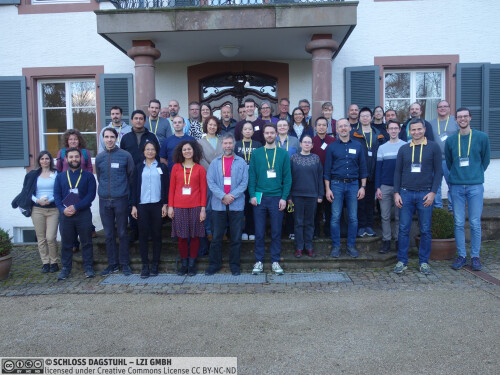
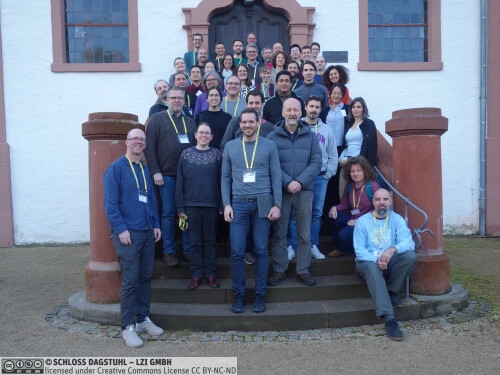
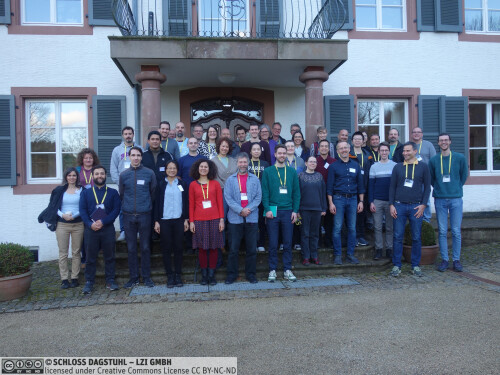
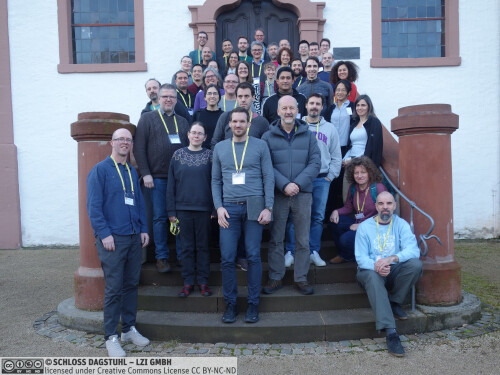
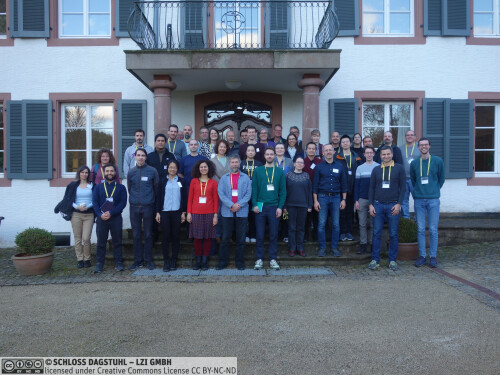
 Creative Commons BY 4.0
Creative Commons BY 4.0
